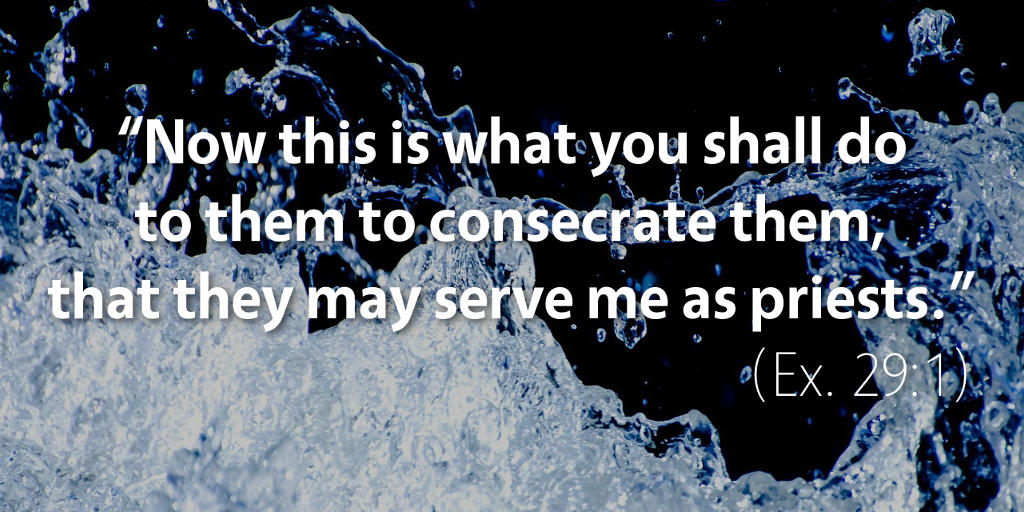Bible Readings for March 18th
Exodus 29 | John 8 | Proverbs 5 | Galatians 4
In Exodus 29, we read about three distinct processes to prepare priests to be set apart for ministry, each with a unique and important theological value. The priests were to be washed with water (Ex. 29:4), anointed with oil (Ex. 29:7), and sprinkled with the blood of a sacrifice (Ex. 29:21).
To start, the washing of water signified cleansing from all worldly defilement,1 a process that underlies the theology of baptism in the New Testament. Peter is the most explicit about this, suggesting in 1 Peter 3:21 that baptism symbolizes the washing away of spiritual dirt: “Baptism, which corresponds to this, now saves you, not as a removal of dirt from the body but as an appeal to God for a good conscience, through the resurrection of Jesus Christ.”
Next, it is important to keep in mind that anointing with oil was not limited to the priests only but was something that also happened to prophets (e.g., 1 Kgs. 19:16) and kings (e.g., 1 Sam. 10:1) as well. Anointing with oil was a symbol for the ministry of the Holy Spirit—see, for example, what happened immediately after David was anointed with oil as king: “the Spirit of the LORD rushed upon David from that day forward” (1 Sam. 16:13). For the priests to be anointed with oil meant the Holy Spirit himself would be actively involved in sanctifying their ministry.
In the New Testament, we are told that we too have the anointing of the Holy Spirit (1 John 2:20, 27). Our anointing (chrisma), however, is connected to the anointing of the ultimate Anointed One, the christos—that is, “the Christ,” who is the final Prophet, Priest, and King.
Finally, the priests were to be sprinkled with the blood of an animal sacrifice. Specifically, the blood of the ordination ram was to be smeared on the priest’s right ear, the thumb on his right hand, and the big toe of his right foot. Before the priests could atone for the sins of Israel, their own sins had to be covered by the blood of a sacrifice.
Of course, the author of Hebrews points to this as a besetting problem of the Old Covenant sacrificial system: as long as priests must remain so busy offering their own sacrifices—not to mention washing themselves with water and anointing themselves with oil—they can never offer a final, once-for-all sacrifice to purify God’s people.
For this reason (among many others), we see that the priesthood of Jesus Christ is enacted on better promises: “But when Christ had offered for all time a single sacrifice for sins, he sat down at the right hand of God….For by a single offering he has perfected for all time those who are being sanctified” (Heb. 10:12, 14).
While the old covenant priesthood was glorious, the glory of Jesus is much, much better.
1 Allen P. Ross, Recalling the Hope of Glory: Biblical Worship from the Garden to the New Creation (Grand Rapids, MI: Kregel, 2006), 211.
Podcast: Play in new window | Download (5.2MB) | Embed
Subscribe: Apple Podcasts | RSS | More

Scripture quotations are from The Holy Bible, English Standard Version copyright © 2001 by Crossway Bibles, a division of Good News Publishers. Used by permission. All rights reserved.


